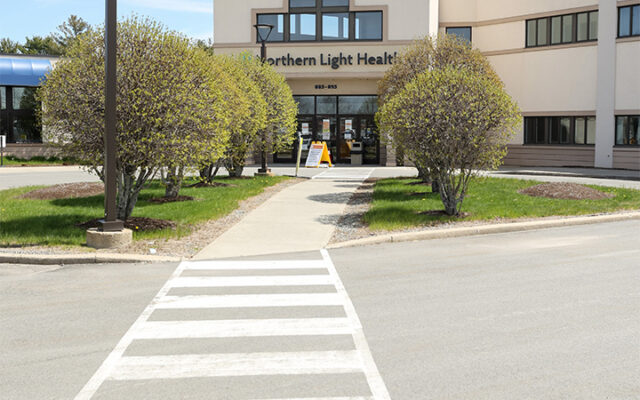
The 340B drug pricing program is a lifeline for Maine’s struggling health care providers
By Matthew Marston and Meagan Rusby
Providing health care in Maine has never been more challenging. The strain on our health care systems is visible everywhere, from hospital and clinic closures to workforce shortages. That’s why it’s critical for Maine lawmakers to act now to protect access to discounted medications for hospitals and community health centers through the federal 340B Drug Pricing Program.
Just last month, Northern Light Health, Maine’s second-largest health system, announced the closure of Northern Light Inland Hospital in Waterville as part of an effort to offset annual losses exceeding $100 million. Across the state, every hospital system is either losing money outright or falling short of the revenue needed to remain sustainable. According to the Center for Healthcare Quality and Payment Reform, 11 Maine hospitals are at risk of closure — including five that could shut down immediately.
Maine’s 19 community health centers, which provide care to more than 200,000 residents in underserved areas, face similar financial challenges. Like nonprofit hospitals, these centers are struggling under the weight of severe workforce shortages, an aging population, and inadequate reimbursements, particularly from government payers.
A critical lifeline for both hospitals and community health centers is the federal 340B Drug Pricing Program. Congress designed 340B to help safety-net providers serve low-income and underserved populations by allowing them to purchase prescription drugs at a discount and reinvest the savings into patient care. This program helps stretch limited federal resources, enabling providers to expand services and reach more patients in need.
Not surprisingly, pharmaceutical companies oppose 340B because it requires them to sell medications at lower prices. In recent years, drug manufacturers have ramped up efforts to undermine the program, claiming that hospitals use the savings to boost their “profits.” The reality is that all of Maine’s acute-care hospitals are nonprofit, and many are financially struggling, with roughly half operating at a loss last year.
Beyond lobbying against the program, drugmakers have taken more aggressive steps to limit access to 340B savings. They’ve imposed restrictions on which pharmacies can dispense discounted medications, directly harming Maine health care providers and patients. For example, these tactics have cost Bangor-based Penobscot Community Health Care, a local Community Health Center, $5 million annually. Additionally, in 2023, safety-net hospitals nationally lost $8.4 billion in savings on drug purchases from manufacturer restrictions and that number continues to climb as more manufacturers continue to layer on additional restrictions.
It’s important to note that the 340B program does not cost Maine taxpayers a dime. If it were eliminated or further weakened, the only beneficiaries would be pharmaceutical companies as millions of dollars would go out of state to pharmaceutical manufacturers around the country — while Maine’s health care system would suffer.
Recently, PhRMA, the drug industry’s lobbying arm, has launched a misleading advertising campaign attacking 340B. These national talking points do not reflect the reality in Maine, where hospitals and health centers are fighting to stay afloat. The 340B program is essential for sustaining health care services, particularly in rural areas.
Maine’s LD 1018 would close the loopholes that drug manufacturers are exploiting to deny hospitals and community health centers access to 340B savings. Similar laws in Arkansas and Louisiana have already protected their providers, and Maine must do the same. By passing LD 1018, lawmakers can secure a vital source of funding that supports a wide range of health services — including dental care, cancer patient navigation, and treatment for uninsured patients.
Allowing the 340B program to be weakened will not save Mainers money; it will do the opposite. If health care providers lose these critical savings, they may be forced to cut services or find alternative funding, further straining an already fragile system. This could be especially devastating for rural hospitals and community health centers, where financial stability is already in jeopardy.
Maine cannot afford to let 340B be undermined. Lawmakers must act now to protect this essential program and ensure that health care remains accessible for the communities that need it most.
Marston is vice president and chief pharmacy officer at Northern Light Health. Rusby is associate director of pharmacy at Penobscot Community Health Center.